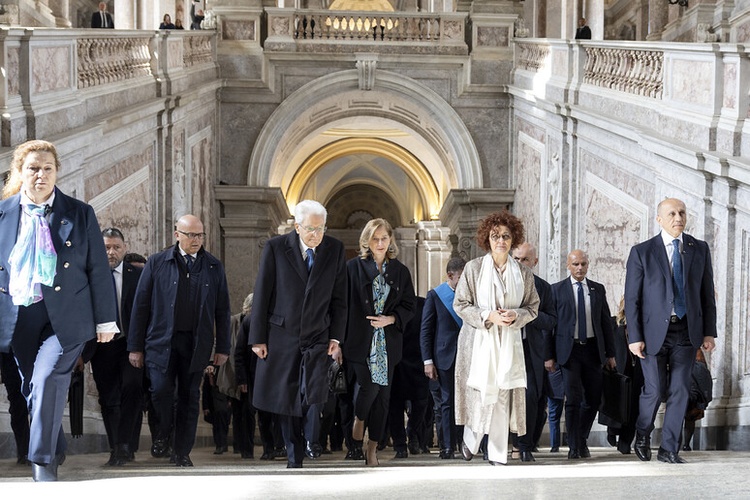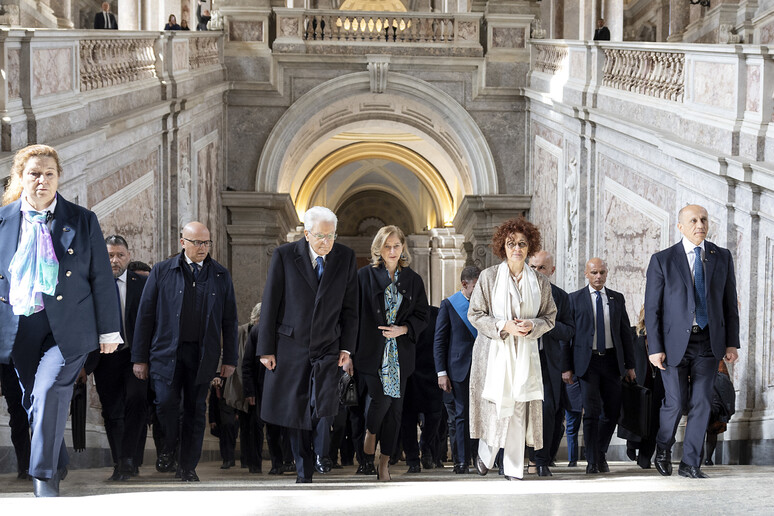The announcement came at the end of the year of celebrations of the palace’s architect, Luigi Vanvitelli, on the 250th anniversary of his birth.
Italy’s Versailles now has over 3000 square metres more of visitable space thanks to the ‘reconquest’ of what had been the Grand Gallery.
It is the second biggest part of the sprawling palace and grounds after the Palatine Chapel.
“These are places that ooze history and have now been restored to their original destiny and splendour,” said Culture Minister Gennaro Sangiuliano, also present at the opening ceremony.
The UNESCO-listed Reggia di Caserta is the largest palace built in Europe in the 18th century.
A World Heritage Site since 1997, it was described in its UNESCO nomination as representing “the swansong of the spectacular art of the Baroque, from which it adopted all the features needed to create the illusions of multi-directional space”.
Construction on the Reggia, built to rival Louis XIV’s Paris chateau of Versailles, began in 1752 on the orders of Charles VII of Naples, who worked closely with Vanvitelli.
Although Charles was reportedly filled with emotion at the sight of Vanvitelli’s grandly scaled model for the Reggia, he never actually had a chance to use it as he abdicated in 1759 to become King of Spain.
The Caserta project, located about 40 kilometres north of Naples, was instead left to his third son and successor Ferdinand IV of Naples to complete.
The palace complex, which has won awards for its beautiful gardens, took nearly 100 years to finish.
In 1860, it became the property of the royal family of the new Italian state, the Savoys, before finally ending up in State hands in 1919.
Since then, it has served many functions.
At the end of World War II, the royal palace became the seat of the Supreme Allied Commander, and in April 1945 was the site of the signing of terms of the unconditional German surrender in Italy.
As well, the courtyards, vestibules, park and Palatine Chapel of the landmark have featured in several Hollywood movies.
The building’s interior has doubled as the Vatican in two recent blockbusters - Mission: Impossible III and Ron Howard’s adaptation of the Dan Brown prequel to The Da Vinci Code, Angels & Demons.
ANSA











